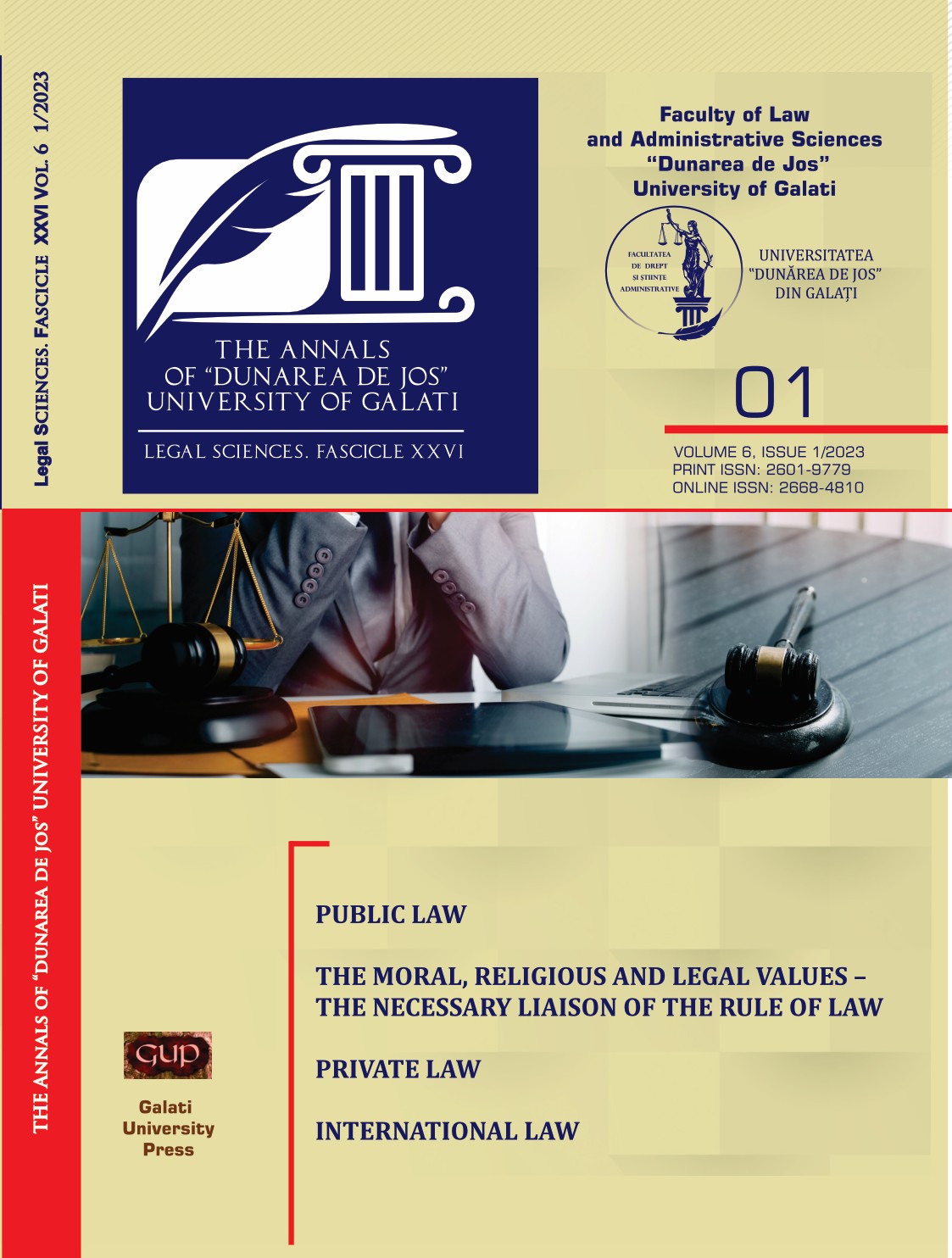On the Advertising and Public Character of the Right of Pledge
Abstract
According to art.186 of Law no.71/2011 for the implementation of Law no. 287/2009 regarding the Civil Code, by ‘pledge’ is meant all real movable guarantees that need the debtor to be dispossessed of the asset affected by the guarantee, regardless of the time and legal basis of their establishment, so that any movable guarantee with dispossession constitutes a pledge. Thus, the pledge presupposes the possession of the asset by the pledge creditor, but this ownership can be exercised through a third party, and in this case, it is necessary to distinguish between advertising and public character, the two being fulfilled under different conditions (the performance of the advertising formalities not being equivalent to the exercise of the precarious detention in public). Also, the condition of the debtor’s consent must be met in terms of the exercise of the material control through a third party, which can take different forms, as the transfer of the asset into the hands of the third party takes place at the conclusion of the pledge contract or it is subsequent to it, considering the actual nature of the contract in question. In addition, for the particular situation of the pledge established on sums of money, the legislator uses the term ‘perfecting’, which is not to be confused with advertising, but, in this situation, the establishment formalities are the same as for advertising, which leads to the conclusion of the need to amend art. 2482 para. (3) Civil Code.

This work is licensed under a Creative Commons Attribution 4.0 International License.
The author fully assumes the content's originality and the holograph signature makes him responsible in case of trial.


